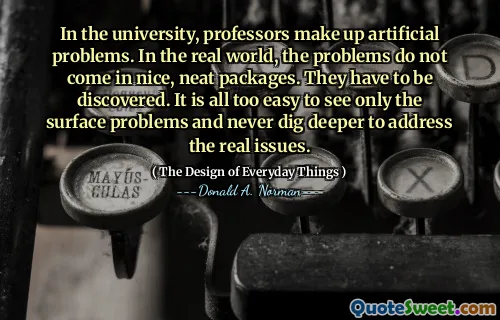
There seems to be a conspiracy, one calculated to destroy our sanity by overloading our memory. Many codes, such as postal codes and telephone numbers, exist primarily to make life easier for machines and their designers without any consideration of the burden placed upon people. Fortunately
The quote highlights a subtle yet pervasive challenge in modern design—how systems often prioritize machine efficiency over human cognitive load. This observation resonates deeply with principles discussed in '(The Design of Everyday Things)' by Donald A. Norman, emphasizing the importance of designing with human usability in mind. As technology advances, developers tend to focus on optimizing for digital processing, automation, and data management, sometimes at the expense of user comprehension and mental ease. For instance, complex coding systems like postal or telephone codes may streamline machine sorting and routing, but they often become burdensome for everyday users who must remember, understand, and navigate these codes without external aid. This imbalance leads to cognitive overload, where individuals feel overwhelmed by the sheer amount of information they need to process, recall, or interpret. The suggestion of a










